Are you looking to make a meaningful impact in the lives of those experiencing homelessness? Writing a letter for a homeless support grant can be a powerful way to convey your passion and dedication to this pressing issue. In this article, we'll guide you through the essential components of a compelling letter that not only highlights the need for support but also showcases your unique approach to helping the community. So, let's dive in and explore how you can craft a winning letter that inspires action!

Purpose and Objective
The primary purpose of the homeless support grant initiative is to provide essential resources and services to individuals experiencing homelessness in urban areas, specifically focusing on cities like San Francisco (with a homeless population of approximately 8,000 in 2023). The objective is to enhance access to vital services such as emergency shelters, mental health support, and job training programs aimed at facilitating long-term stability. Targeted outreach efforts will be employed to reach underserved populations, including families with children, veterans, and those dealing with substance abuse issues. Collaborative programs will involve local non-profit organizations such as the San Francisco Homeless Outreach Program, aiming to connect individuals to housing solutions, healthcare services, and employment opportunities within a framework of dignity and respect. Comprehensive reporting and evaluation mechanisms will track measurable outcomes, ensuring effective allocation of resources and continuous improvement in service delivery addressing homelessness.
Organization Background
Established in 2010, Hope Haven is a non-profit organization located in San Francisco, California, dedicated to addressing homelessness in the Bay Area. Over the past decade, Hope Haven has provided essential services to over 5,000 individuals, offering shelter, meals, and counseling. The organization operates a 24/7 emergency shelter capable of accommodating up to 100 residents each night. In addition to immediate assistance, Hope Haven offers workforce development programs aimed at helping individuals secure stable employment, with a success rate of 75% for participants finding jobs within three months. Community outreach initiatives engage local businesses and volunteers, further fostering a strong support network throughout the region.
Funding Requirements
The ongoing homelessness crisis in urban areas, especially in cities like Los Angeles and New York, necessitates immediate attention and strategic funding. Grant proposals for homeless support programs frequently emphasize the need for financial backing to facilitate essential services such as emergency shelters and transitional housing. Specific funding requirements typically include detailed budgeting for food supplies, healthcare services, and job training programs that help individuals regain independence. For instance, a comprehensive plan could outline $100,000 allocated for operating shelters that serve over 300 individuals annually, alongside $50,000 earmarked for mental health support, crucial in addressing root causes of homelessness. Additionally, applications often prioritize community partnerships, aiming to leverage local resources and expertise, making a compelling case for sustainable interventions and long-term success in reducing homelessness.
Impact and Outcomes
Homeless support programs often focus on providing safe housing, essential services, and job training to individuals experiencing homelessness. Organizations like the U.S. Department of Housing and Urban Development (HUD) report that supportive housing programs can reduce homelessness by 30%. Access to shelter not only mitigates immediate risk but also fosters stability. Outcomes of successful initiatives may include increased rates of permanent housing placements, which may reach 70% sustainability after six months. Furthermore, job training programs have shown a significant impact, leading to a 50% increase in employment among participants who engage in skills workshops. Overall, targeted investment in homeless support leads to substantial social benefits, reduced emergency healthcare costs, and improved community health metrics in cities across the United States.
Contact Information
Contact information plays a crucial role in applications for homeless support grants. Providing accurate details ensures that organizations, such as the Department of Housing and Urban Development (HUD), can reach applicants for updates, resource distribution, or further assistance. Essential components include a primary contact name, mobile number, and email address, ideally verified to be operational. Physical addresses, including zip codes, are important for determining eligibility based on regional funding allocations. In cases of organizations seeking assistance, including the organization's name, registration number, and a brief description of mission and objectives enhances credibility and clarity in the application process.

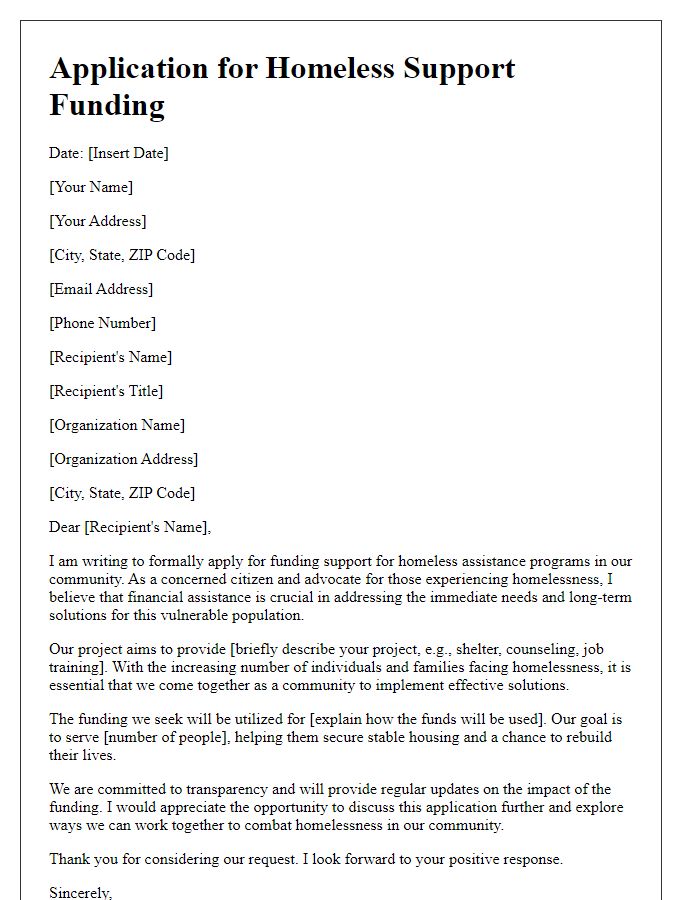
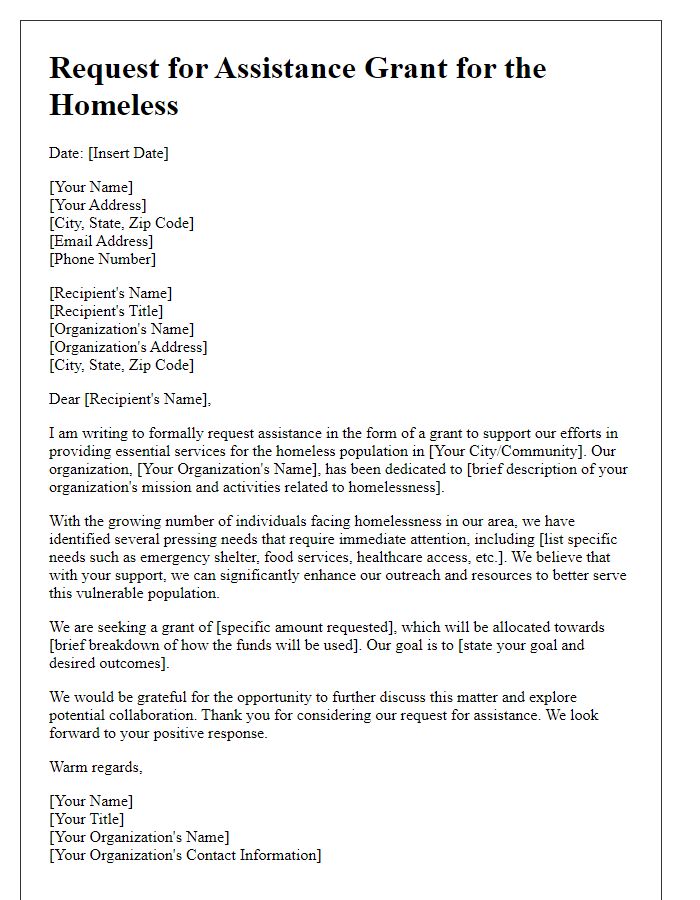
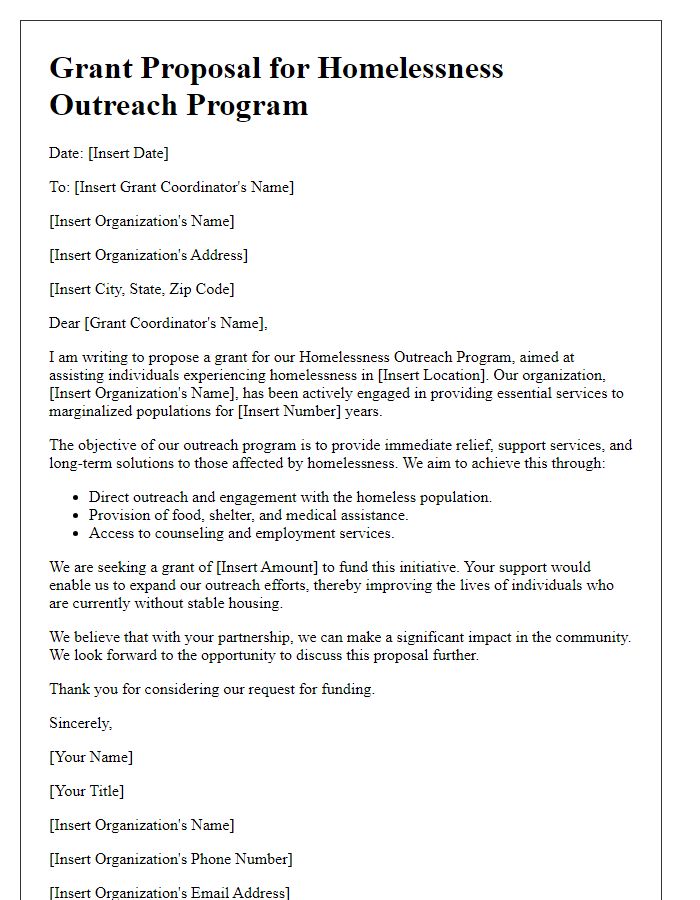
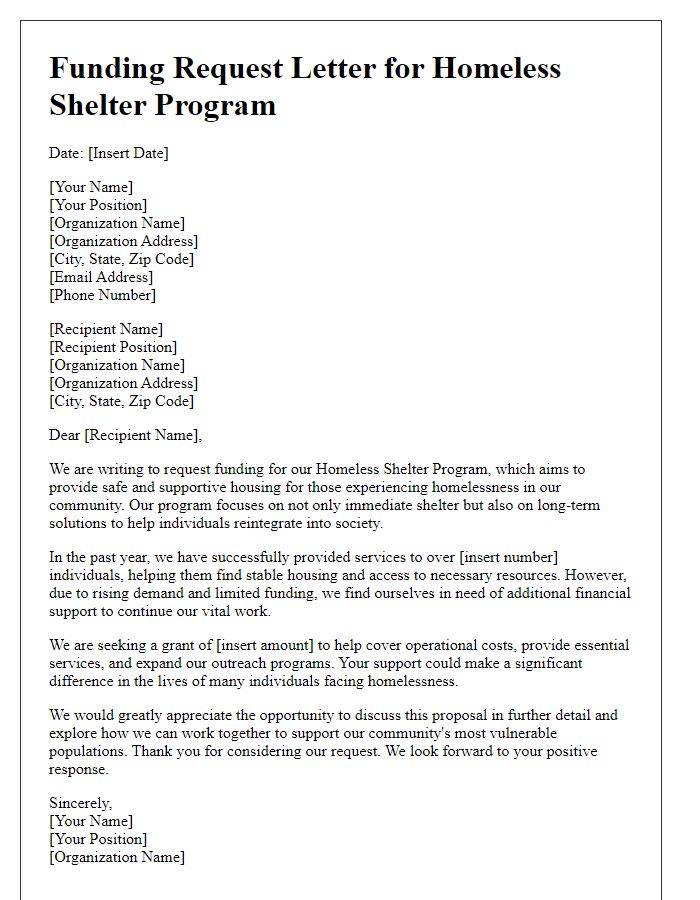
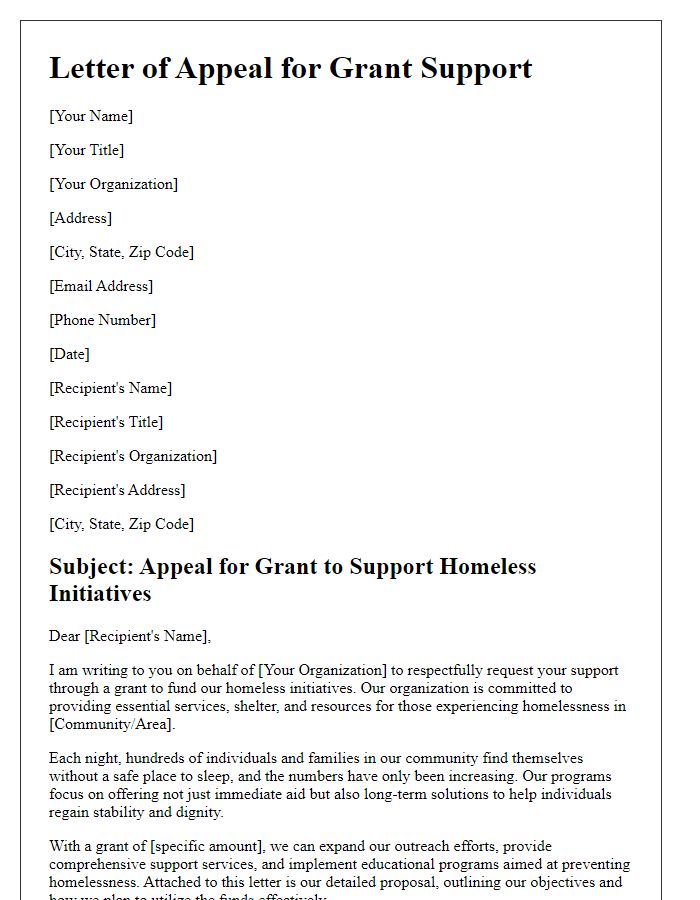
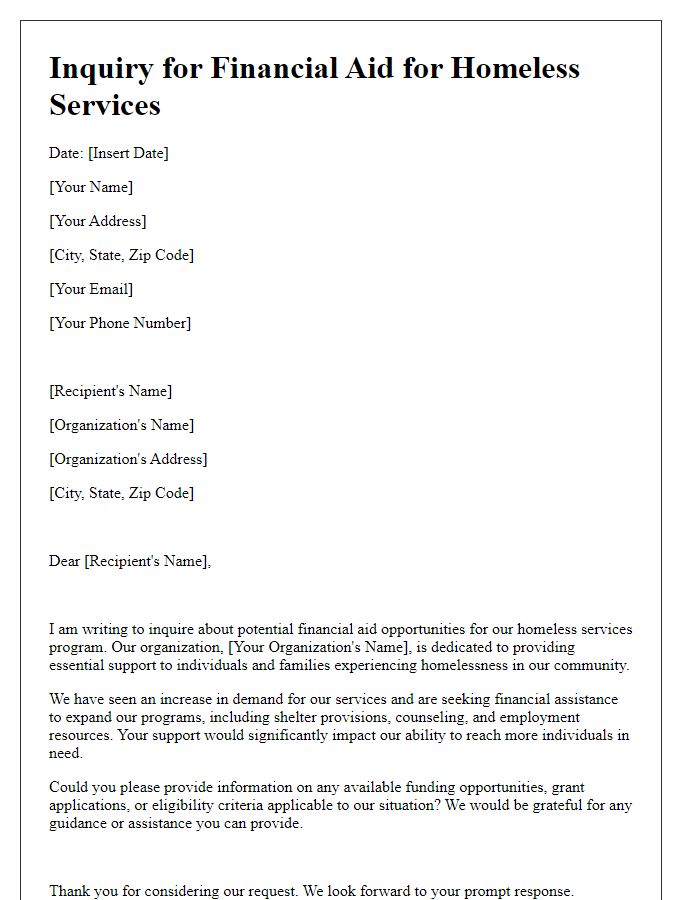
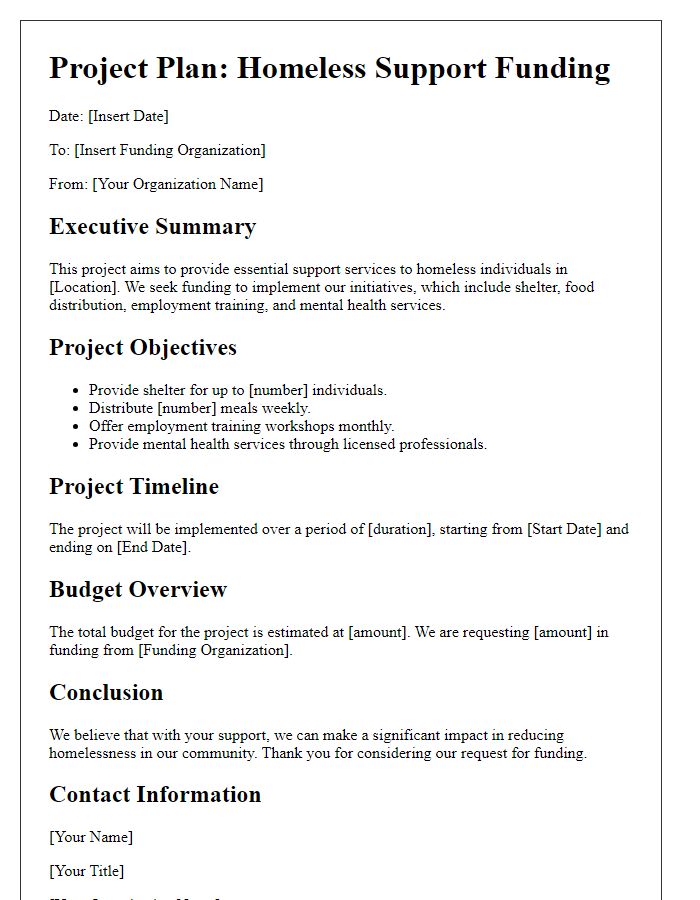
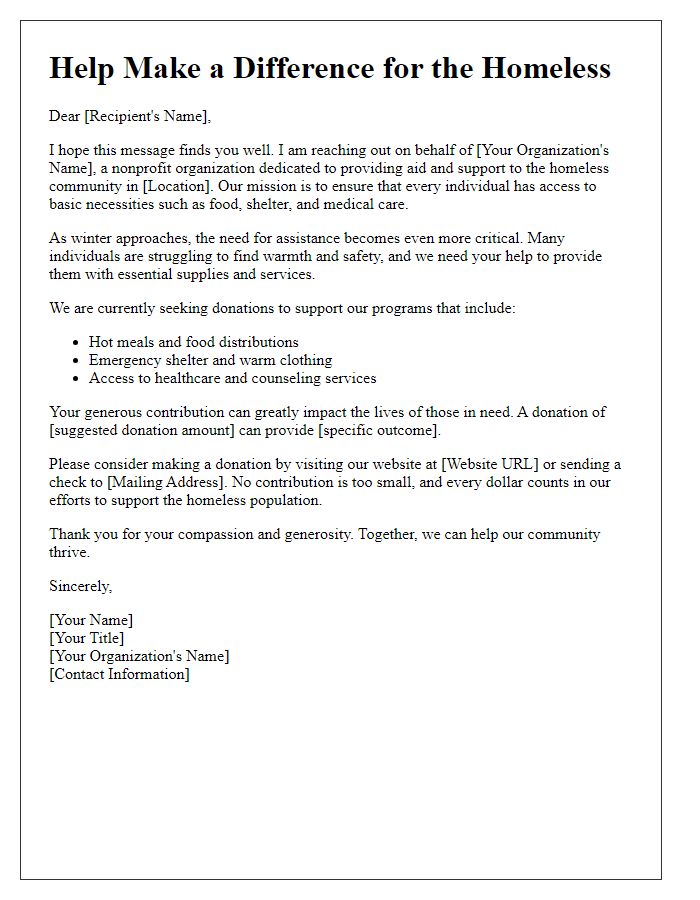
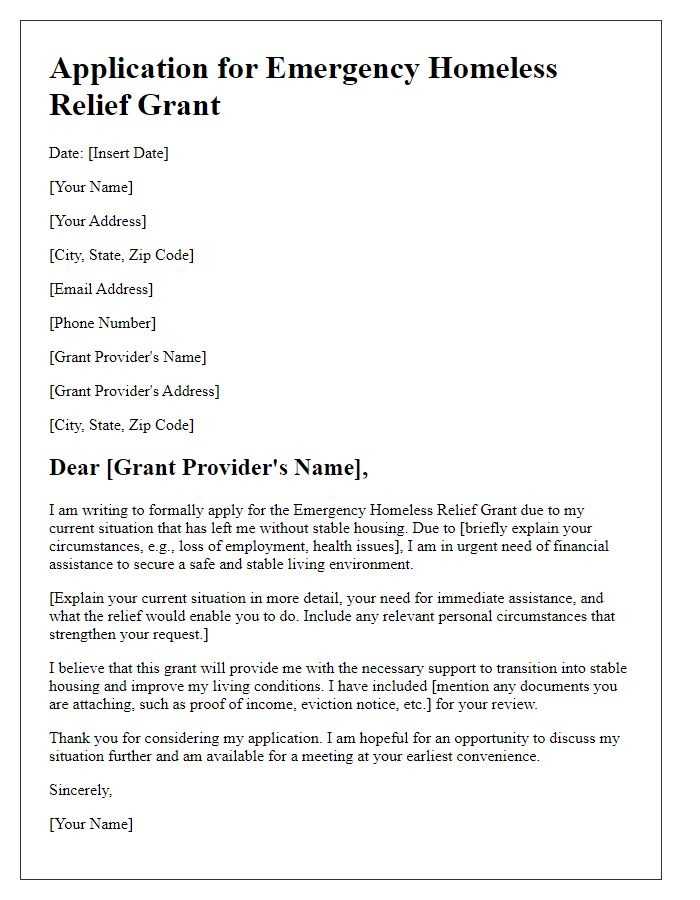
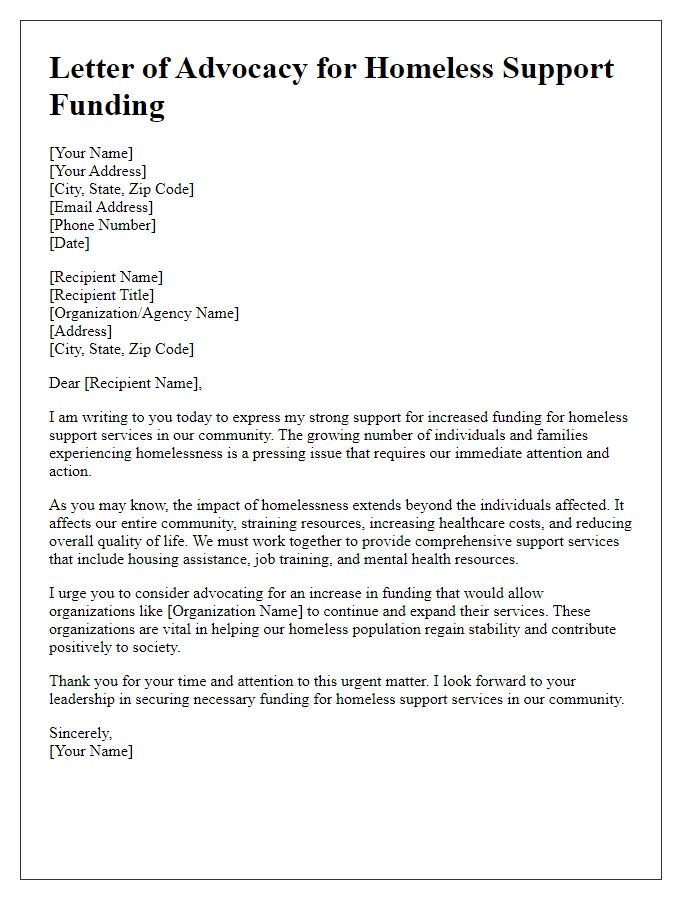

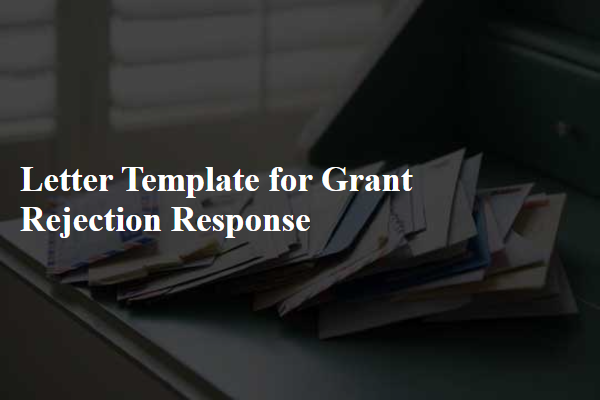
Comments